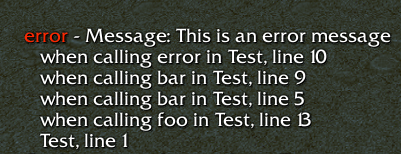
In the last couple of months, we have reached over 100 stars on GitHub, updated our homepage, and as usual caught up with support for Warcraft 3 patches 1.30.2 and beyond.
Tool updates
- The wurst family of tools now supports the latest battle.net stable patch (1.30.2).
- The wurst language was updated to allow
classes to contain tuple array members. - Improper usage of generic types now throws proper compilation errors
- Attempting to access objects that are known to have already been destroyed now fails at compile time.
- Fixed a bug in local optimizations which caused unexpected behavior.
- Wurst no longer requires JavaFX, which enables wurst builds in a wider range of java distributions.
Standard library highlights
- Merged over a dozen awesome pull requests.
- Added
DummyCasterin addition toInstantDummyCasterfor channel based spells, and spells with delayed effects. - Fixed some critical bugs in
HashList,HashSetandKnockback3D. - We have newly-added code conventions - go align your formatting!
- We have begun writing in-depth package documentation
Spotlight: Stack traces
Did you know that WurstScript generates stack traces for calls of error(string msg) from the ErrorHandling package? You might have seen this from a wurst error before - it will show you which lines in your code were executed in what order before the error occured.
Take a look at this example:
package Test
import ErrorHandling
function foo()
new A().bar()
class A
function bar()
error("This is an error message")
init
foo()
It produces the following stacktrace ingame:

As you can see the most recent line comes at the top and the oldest at the bottom. Stack traces help tremendously with debugging errors, as it gives you a history of what happened before the error. Naturally they cause quite a performance hit. If you verified your map working well, you can disable them via the corresponding runarg -stacktraces, which is enabled by default.